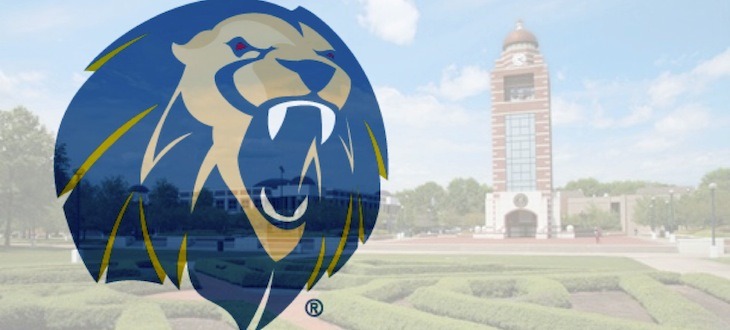UAFS boss says budget for fiscal year 2020 is good, but 2021 ‘not nearly as bright’
by May 13, 2020 4:46 pm 915 views

The University of Arkansas at Fort Smith is preparing to ask for a renewal of the ¼-cent county-wide sales tax that benefits the institution and is set to sunset in in 2022 based on estimated declines in revenue and enrollment for the 2020-21 school year.
When Westark College joined the University of Arkansas system and set to transition to a four-year institution, the college was no longer eligible to receive millage revenues. Sebastian County voters approved a ¼-cent sales tax to go into effect Jan. 1, 2002, the same day the institution became the University of Arkansas at Fort Smith in order to help fund the transition and growth of the university. That sales tax sunsets Jan. 1, 2022, but Act 1087 of 2013 gave UAFS the legal authority to request a sales tax extension for 10 years.
The University of Arkansas Board of Trustees unanimously passed a resolution in support of placing the extension before the voters of Sebastian County in the form of a ballot question on the November general election, UAFS Chancellor Dr. Terisa Riley told the UAFS Board of Visitors during its meeting Wednesday (May 13). Riley said she submitted the ordinance to Sebastian County Judge David Hudson. The Sebastian County Quorum Court will be required to read the ordinance at three separate meetings or vote to expedite the readings.
UAFS has used sales tax dollars to help fund many renovations and additions needed for a four-year university, Riley said. During the 20 years of the sales tax, the university has grown to offer 51 bachelor degree and two master degree programs. In the past 10 years, UAFS has awarded 13,503 credentials and degrees; 6,969 or more than 50% of those have been bachelor’s degrees. The number of bachelor’s degrees awarded in a year almost doubled in the past 10 years, going from 419 in 2009-2010 to 826 in 2018-19, Riley said.
The sales tax generated $6.25 million for UAFS in 2019. The university budgeted $6.2 million for fiscal years 2020 and 2021. University officials estimate a 50% reduction in county sales tax revenues in April through June, with a total loss of sales tax revenues for the university in FY20 at $1.45 million, due to the COVID-19 pandemic. In FY21, the university expects to only receive $4.2 million in sales tax revenues due to the pandemic’s effect on the economy, Riley said.
BUDGET SHORTFALLS
Because of the pandemic, the university is estimated more loss of revenue than just sales tax dollars. For FY20, UAFS had an $863,274 reduction in state appropriation, due to cuts made by the state legislature to reach a balanced budget, Riley said. It also had a $104,721 reduction in housing and dining revenue and revenue that would have been generated from summer camps and conferences. On April 8, the UA Board of Trustees made the decision for the summer sessions at all schools in the UA system to be on-line only and for all summer conferences and camps to be cancelled. The trustees also voted not to raise tuition and fees for fall 2020, Riley said.
With the reductions for various sources, UAFS will have a loss of $2.418 million in resources through June, Riley said. This money has been made up by making cuts in several areas including travel and catering and intentionally holding some positions open, Riley said. Also, summer enrollment is up by 10% this summer.
“We can end this fiscal year in pretty good shape because we have already made some pretty tough choices,” Riley said. “FY21 is not nearly as bright.”
The university was told there will be a major reduction in terms of state appropriation for FY21.
“They have taken the higher education budget and put 85% of those funds into Category A and then 5% in B, 5% in C, 5% in D. We’ve been warned not to budget to receive categories C and D, which would mean a 10% reduction in state appropriation. … We were also told there will be a 10% reduction in our education excellence trust fund,” Riley said.
Added with the estimated loss in county sales tax dollars, Riley said UAFS may face an overall reduction of $8.8 million in resources for FY21, or more than 10% reduction to the overall resources of the institution. Part of that is based on an estimated 15% reduction in tuition and fees in fall 2020. To offset this funding loss, officials have installed a hard hiring freeze in order to use vacant position salaries and benefits for filling budget gaps.
Dr. Ron Darbeau, dean of the College of Science, Technology, Engineering and Mathematics and interim dean of the College of Health Sciences is leaving the university to serve as provost and vice president for academic affairs at Lock Haven University in Lock Haven, Penn. Dr. Dr. Ashok Subramanian, dean of the College of Business, has taken a position as the head of the college of business at an institution in Arizona, Riley said.
That leaves three dean positions that will not be filled for the 2020-21 school year. The associate deans in those colleges – Dr. Lynn Korvick, health sciences; Dr. Linus Lu, STEAM; and Dr. Latisha Settlage, business – will act as interim deans, Riley said. The university also created budget subcommittees to seek other ways to trim the budget, she added.
